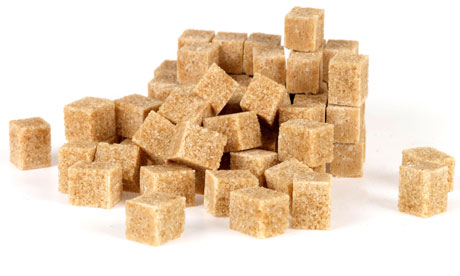
Sugar is hard to resist and our consumption of it has increased relentlessly. Last week, research from the Universities of Bristol and Bangor, published in the journal Appetite, showed that drinking two sugary drinks a day makes us crave even sweeter food and drink.
What is sugar?
A loose term covering a class of carbohydrates that includes sucrose, (from sugar cane or sugar beets), lactose (milk sugar) and fructose (fruit sugar). Refined sugar – of the kind you put in your tea – is made up of a molecule of glucose combined with a molecule of fructose. Fructose is twice as sweet as glucose.
Is sugar bad for you?
The sugar industry says that there are no bad foods. It also argues, forcefully, that sugar does not provide empty calories, a charge laid against it by nutritionists who say that the refining process strips out and bleaches sugar, removing vitamins, minerals and other nutrients. Although it can't argue that sugar is full of goodness, it says that people who eat sugar do not seem to be vitamin or mineral deficient. Which isn't quite the same thing. What no one can argue about is that sugar causes tooth decay.
At least one and a half million people may now think sugar is bad for them, thanks to a video called Sugar: the Bitter Truth, on YouTube. It's a 90-minute lecture from Robert H Lustig, professor of Paediatrics at the University of California in San Francisco, arguing sugar is a poison. And the particular villain is high fructose corn syrup, used in sweet, fizzy drinks and processed foods.
Lustig says sugar is more harmful than just empty calories. He says we metabolise glucose (found in bread and pasta) differently from sugar. Glucose is broken down by every cell in the body, while sugar and high fructose corn syrup are preferentially metabolised by the liver. Lustig cites animal research showing that the liver doesn't cope well with a rapid onslaught of large amounts of sugar or fructose and converts it more readily to fat. This increases the likelihood of obesity and the type of diabetes that is resistant to insulin. The fat is a saturated fatty acid called palmitate, which raises cholesterol and the risk of heart disease. There isn't robust evidence, but it's a compelling hypothesis.
How much sugar should I eat a day?
The British Dietetic Association advises no more than about 50g of added sugars (such as fruit juice and other drinks, honey, jam and sugar you add to food). One teaspoon of sugar (about 4g) has around 16 calories. A large coke (half a litre) will have 15 teaspoons. Most people eat more sugar than they should and do not reduce their calorie intake if they drink sugary drinks. A review of the link between drinking sweetened drinks and obesity, published in the journal Public Health Nutrition, concluded that sweet drinks have caused a fifth of the weight gained in the US population between 1977 and 2007. Even fruit juice is deceptively bad for you – Lustig says it causes obesity in toddlers. A glass of freshly squeezed orange juice can contain five teaspoons of sugar.
Help, what should I do?
Dilute fruit juice or eat fruit (less concentrated sugar) read how much sugar is in the food you buy. Eat less of it.

